Page 9 - Benchmark: PCMark 7
About PCMark 7
PCMark 7 includes 7 PC tests for Windows 7, combining more than 25 individual workloads covering storage, computation, image and video manipulation, web browsing and gaming. Specifically designed to cover the full range of PC hardware from netbooks and tablets to notebooks and desktops, PCMark 7 offers complete PC performance testing for Windows 7 for home and business use.
From: Developer's Page
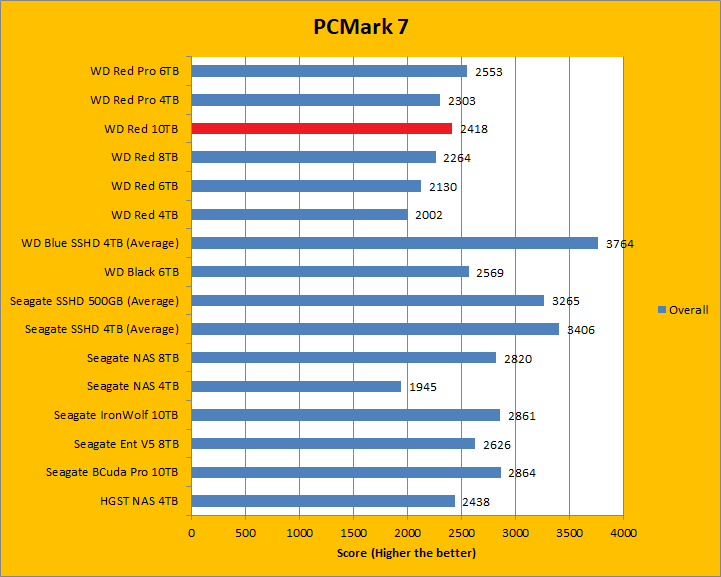
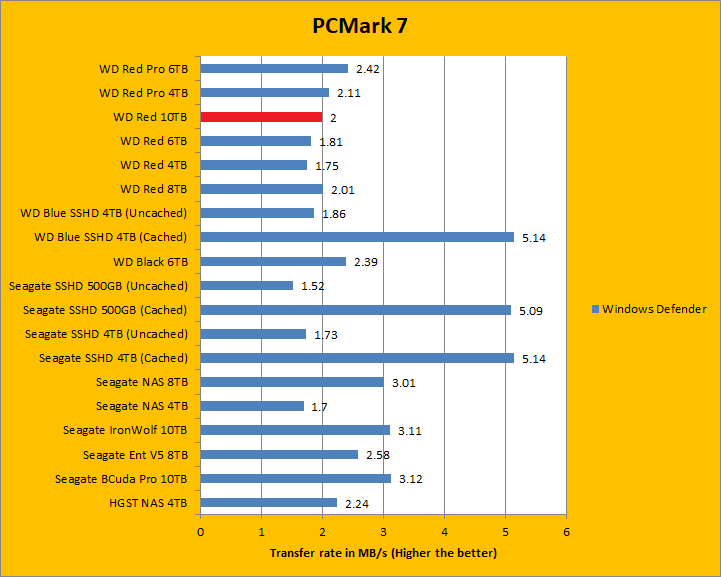
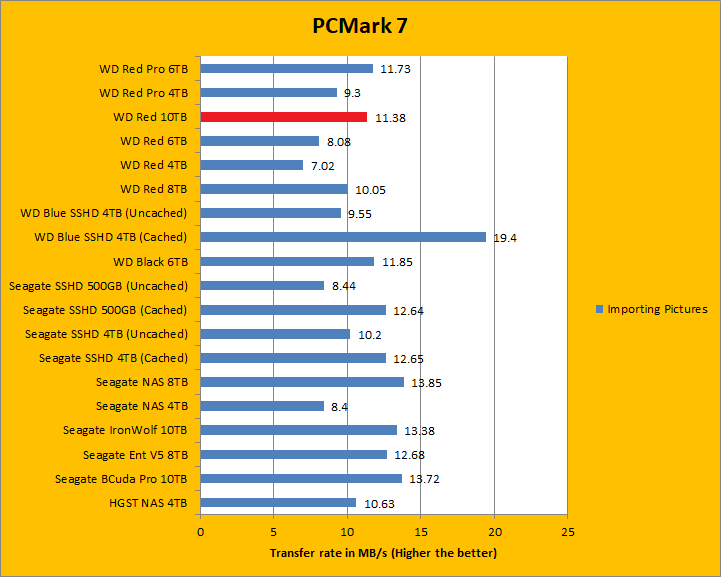
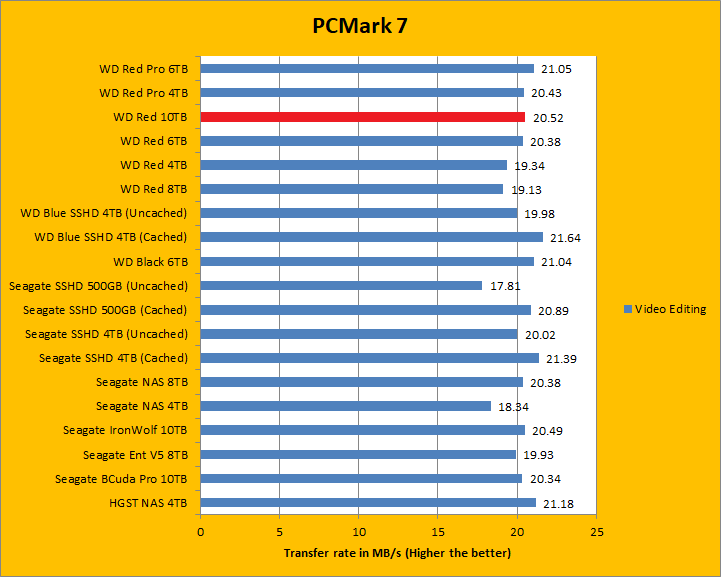
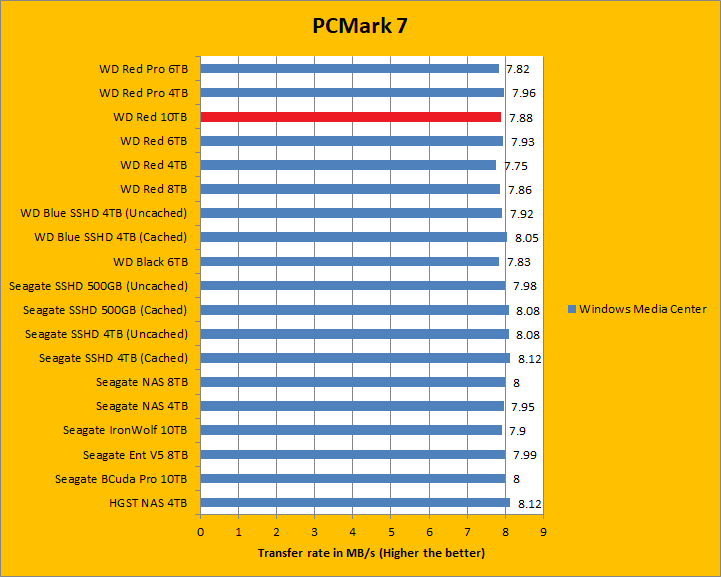
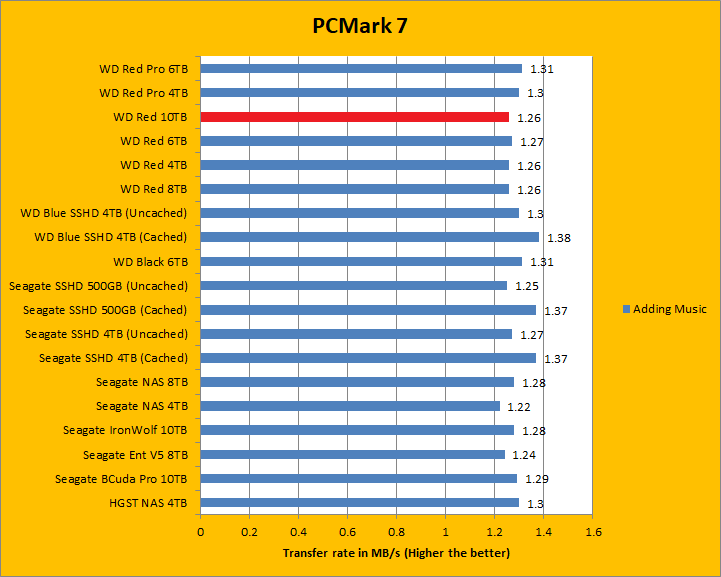
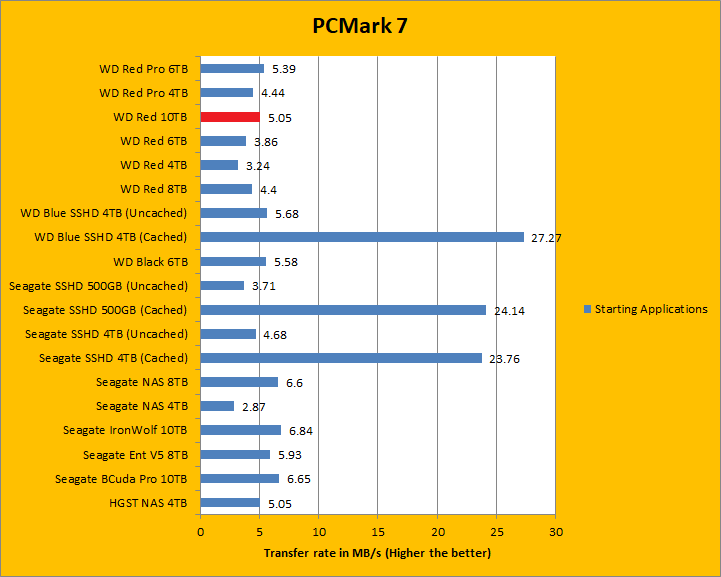
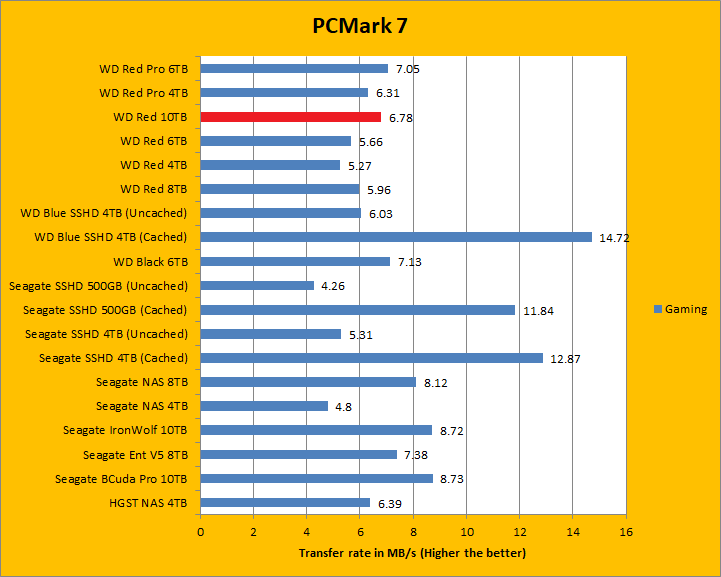
PCMark 7 aims to shed a little more insight into real life performance of your computer hardware by semi-synthetic means -- and all insight is good, right? The great thing about standardized tests is anyone can repeat them and get very similar results, given identical hardware. PCMark 7 is a Windows desktop environment based test, which is exactly what we are after. Also, we can see some caching going on between iterations, which allowed us to see what kind of boost some of the SSHDs in this test brings to the table. Well, I am not going to narrate the stuff above in detail, because we all know graphs are there for a very good reason. As you can see in our results above, the WD100EFAX was slightly faster than the WD80EFRX, which in turn was slightly faster than the WD60EFRX, but its 5,400RPM spindle speed held it back from beating any of the 7,200RPM models like the Seagate IronWolf 10TB. It still consistently held its own among other hard drives in each simulation segment, which was very commendable overall.
Page Index
1. Introduction, Features, Specifications
2. A Closer Look, Test System
3. Benchmark: AIDA64 Disk Benchmark
4. Benchmark: ATTO Disk Benchmark
5. Benchmark: Crystal Disk Mark 3.0
6. Benchmark: HD Tach 3.0.1.0
7. Benchmark: HD Tune Pro 4.60
8. Benchmark: PassMark PerformanceTest 9.0
9. Benchmark: PCMark 7
10. NAS Performance, Power Consumption
11. Conclusion





